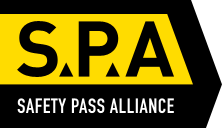After transforming its safety culture, LBC Tank Terminals won a 2019 Verdantix EHS Innovation award for its surge in near miss reporting, amongst other EHS successes.

LBC Tank Terminals (LBC) is a global provider of responsible logistics solutions headquartered in Belgium. In 2017, the company fired up an innovative HSE technology project to complement its new integrated and holistic approach to Corporate Social Responsibility.
This new approach consisted of LBC’s five core values: responsibility, transparency, respect, integrity and empowerment. As a result, the mentality of addressing HSSEQ as a separate department was removed — safety is everyone’s responsibility, regardless of department.
Moreover, LBC shifted the focus to proactive reporting: capturing potential incidents alongside actual incidents.
“Always Safe Never Sorry”
LBC strives to provide the safest, most reliable and efficient tank storage possible, all while ensuring there is no such thing as a dangerous product under their care. It works hard to provide a safe working environment and a culture with safety at its core — reflected in its motto ‘Always Safe Never Sorry’.
A New Vision Needed New EHS Software
To help meet its new EHS goals, the company implemented new EHS software from Pro-Sapien. It replaced an ‘outdated’ Oracle-based system which required one FTE to administer and only three staff members per site were trained to use it.
Allison Volbeda-Newell, Group Corporate Social Responsibility Director at LBC, said: “LBC takes a holistic approach to risk management. We … have improved employee engagement [in safety] ever since. Not only that, we now proactively capture a broader spectrum of risks.”
The Results
Now, all LBC employees – regardless of department – can report incidents and near misses. Non-HSSEQ staff are comfortable reporting incidents, near misses and potentially unsafe conditions. So much so, incident reports by non-HSSEQ staff rose a massive 83%, and near misses and unsafe situations reports increased by 370%.
Further results include:
– One day each month saved in running HSSEQ reports;
– Faster responses to non-compliance issues;
– Site Managers running their own HSSEQ reports;
– Increased user engagement by aligning Incident Reporting with Safety Training.
In the future, LBC will continue to monitor and improve terminal performance. Allison said: “The focus on actively tracking proactive reporting and assigning risk treatment measures makes LBC an even safer and more rewarding place to work.”
SHP



















